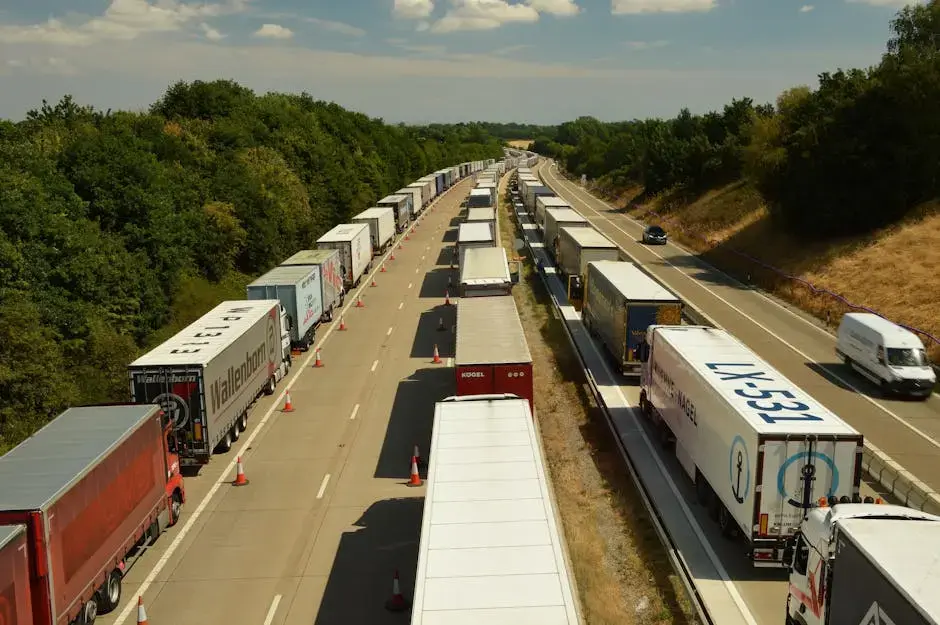The Role of Freight Brokerage in Scaling Logistics Businesses
- Seona seona@usestyle.ai
- Nov 5, 2024
- 4 min read
In the ever-evolving world of logistics, businesses are constantly seeking ways to streamline operations and improve efficiency. Freight brokerage has emerged as a key component in achieving these goals, providing third-party expertise and connectivity to navigate this complex landscape. But what exactly is freight brokerage, and how can it help logistics businesses scale? Let's explore its role in the logistics industry and its benefits.

Understanding Freight Brokerage
Freight brokerage acts as a middleman between shippers and carriers, allowing businesses to transport goods efficiently without the logistical burden of coordinating shipments themselves. By leveraging their networks and expertise, brokers can negotiate better deals and ensure timely deliveries. Within this landscape, freight brokers offer more than just a matchmaking service; they provide an essential link between demand and supply, ensuring that goods not only reach their destination on time but also cost-effectively. The importance of this intermediary role becomes evident when considering the vast array of freight brokerage solutions available, tailored to meet the needs of diverse business requirements.
For those new to the logistics industry, freight brokers are indispensable in navigating the complex regulations and requirements involved in transport logistics. From understanding state and federal regulations to optimizing transportation routes, the broker's expertise significantly enhances the efficiency of the supply chain. This expertise often includes handling insurance claims, ensuring DOT compliance, and securing necessary permits, all of which can be daunting for businesses to manage independently. Thus, freight brokers not only simplify the logistical process but also provide businesses with peace of mind that their shipments are handled by professionals.
Key Benefits of Using a Freight Broker
One of the main advantages of freight brokerage is access to a vast network of carriers. This connectivity enables better matching of loads to trucks, optimizing routes and minimizing costs. Additionally, brokers provide valuable market insights and industry trends that can guide strategic decisions. For instance, brokers can inform businesses about seasonal shipping trends, emerging markets, and competitive rates. These insights help businesses adjust their logistics strategies proactively, rather than reactively, resulting in greater agility and competitiveness in the market.
Moreover, working with freight brokers provides businesses with flexibility. Whether there is an unexpected surge in demand or a need to tap into a new market, brokers can quickly adapt and provide solutions without the overhead costs associated with maintaining an in-house logistics team. This adaptability is crucial for businesses looking to scale operations without cumbersome investments in additional resources. In today's fast-paced economy, having the ability to quickly scale your logistics capabilities with minimal downtime or investment is a significant competitive advantage.
Freight brokerage significantly reduces the risk involved in logistics operations. With their vast experience and established industry relationships, brokers can anticipate potential disruptions and have contingency plans in place. They offer businesses a safeguard against unforeseen delays, unfavorable weather conditions, and other logistic nightmares that could impact delivery schedules. By mitigating these risks, freight brokers ensure that businesses uphold their commitments to customers, thus maintaining and enhancing their reputation.
How Freight Brokerage Facilitates Business Growth
By outsourcing logistics management to a freight broker, businesses can focus on their core competencies and expansion plans. The efficiency and expertise brought by brokers allow companies to scale operations without investing heavily in infrastructure or personnel. For instance, scaling freight brokerage profits can lead to significant financial gains and business growth. This expansion frees up resources to focus on market penetration, research and development, and customer relationship management, thus fostering growth from various angles beyond logistics.
Partnering with a freight broker also allows businesses to tap into new geographic markets with minimal risk. With established networks across national and international borders, brokers can efficiently manage cross-border logistics, ensuring compliance with customs regulations and reducing the complexities of international shipments. This capability opens doors for businesses to venture into foreign markets with confidence, knowing they have a reliable partner managing their logistics needs.
As businesses expand, so do their supply chain needs, often requiring integration with other services such as warehousing, inventory management, and distribution. Freight brokers have the connections to facilitate this seamless integration, often offering comprehensive logistics solutions that cover the entire supply chain. This holistic approach allows businesses to leverage brokerage services as a one-stop shop for all their logistical needs, further driving growth through efficiency and streamlined operations.
The Role of Technology in Modern Freight Brokerage
Technology has revolutionized the freight brokerage industry by introducing advanced tools for tracking, communication, and analytics. These innovations enhance visibility and efficiency, making it easier for logistics companies to optimize their supply chain and respond swiftly to market demands. For example, the integration of advanced TMS technology provides brokers with real-time data on shipment statuses, allowing for proactive decisions that mitigate delays and improve service delivery. The use of predictive analytics also allows brokers to forecast demand, enabling better resource allocation and cost management.
Moreover, technology in freight brokering offers enhanced communication capabilities, ensuring that all stakeholders from shippers to carriers are aligned throughout the logistics process. Through mobile applications and cloud-based platforms, freight brokerages can provide real-time updates and facilitate seamless communication between parties, diminishing the likelihood of costly misunderstandings. This level of interconnectedness not only boosts efficiency but also enhances the overall client experience by ensuring transparency and reliability.
Harnessing the Power of Freight Brokerage for Growth
Freight brokerage plays a pivotal role in the growth of logistics businesses by simplifying the transportation process, providing crucial industry insights, and leveraging technology for enhanced efficiency. By collaborating with freight brokers, businesses can focus on core operations and expand their reach effectively. As the logistics industry continues to evolve, freight brokerage will remain an invaluable partner in scaling operations and achieving success.




Comments